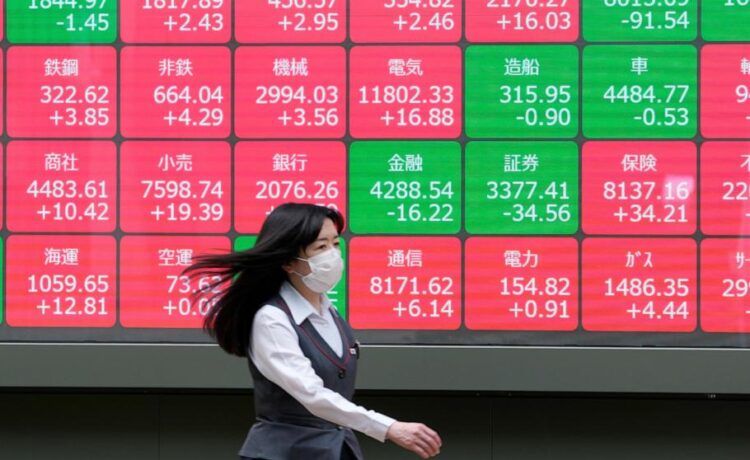European markets opened with gains after President Joe Biden exited the 2024 race, while Asian shares mostly fell
European markets opened with gains Monday after President Joe Biden exited the 2024 race, while Asian shares mostly fell.
Biden announced his withdrawal from the 2024 presidential race on Sunday and endorsed Vice President Kamala Harris to take on former President Donald Trump, adding to uncertainties over the future of the world’s largest economy.
Biden’s decision “barely dented financial markets,” Stephen Innes of SPI Asset Management said in a commentary.
“U.S. yields and the dollar opened slightly weaker in Asia but then rebounded, suggesting investors were fully clued into this outcome. The odds of a Trump victory also haven’t changed much,” he said.
Most of the disruptions from a massive technology outage Friday appeared to have been resolved over the weekend.
Germany’s DAX rose 0.8% to 18,311.32 in early trading and the CAC 40 in Paris gained 0.8% to 7,596.64. In London, the FTSE 100 added 0.5% to 8,194.82.
The future for the S&P 500 was 0.3% higher and that for the Dow Jones Industrial Average edged up 0.1%.
In Asian trading, Japan’s benchmark Nikkei 225 slipped 1.2% to 39,599.00.
The Hang Seng in Hong Kong added 1.3% to 17,635.88 and the Shanghai Composite index dropped 0.6% to 2,964.22 after China’s central bank unexpectedly lowered its one-year benchmark loan prime rate, or LPR, which is the standard reference for most business loans, to 3.35% from 3.45%.
The People’s Bank of China cut the five-year loan prime rate, a benchmark for mortgages, to 3.85% from 3.95%, aiming to boost slowing growth and break out of a prolonged property slump.
This came after the government recently reported the economy expanded at a slower-than-forecast 4.7% annual pace in the second quarter.
Elsewhere in Asia, Australia’s S&P/ASX 200 dipped 0.5% to 7,931.70 and South Korea’s Kospi lost 1.1% to 2,763.51.
On Friday, the S&P 500 fell 0.7%, closing its first losing week in the last three and its worst since April. The Dow Jones Industrial Average dropped 0.9%, while the Nasdaq composite sank 0.8%.
Friday’s moves came as the major outage disrupted flights, banks and even doctors’ appointments around the world. Cybersecurity firm CrowdStrike said the issue believed to be behind the outage was not a security incident or cyberattack and that it had deployed a fix. The company said the problem lay in a faulty update sent to computers running Microsoft Windows.
CrowdStrike’s stock dropped 11.1%, while Microsoft’s lost 0.8%.
The outage hit check-in procedures at airports around the world, causing long lines of frustrated fliers.
In other dealings early Monday, U.S. benchmark crude oil was unchanged at $78.64 per barrel in electronic trading on the New York Mercantile Exchange.
Brent crude, the international standard, added 7 cents to $82.70 per barrel.
The U.S. dollar fell to 156.64 Japanese yen from 157.49 yen. The euro rose to $1.0892 from $1.0877.













